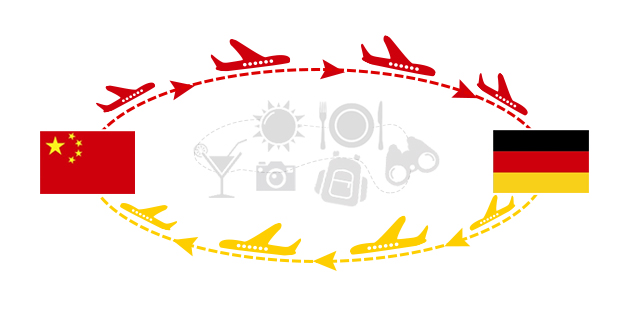China's overseas acquisitions rebound strongly in recent months
 |
|
A pedestrian walks past skyscrapers in London. [Photo/Agencies] |
WASHINGTON - Chinese companies have been speeding up their overseas acquisitions since March after a sharp slowdown in the beginning of the year, a report from a US consultancy showed.
A new report by Rhodium Group, a consultancy famous for its tracking of China's overseas investments, found that the number of Chinese companies' overseas mergers and acquisitions (M&A) rebounded strongly in May, although the number for the first six months of 2017 fell by 20 percent compared to the same period in 2016.
"In each of May and June, Chinese companies publically announced more than 20 new overseas M&A transactions with a value of 5 million US dollars or more, around levels seen near the 2016 peak," said the report.
China's outbound foreign direct investment dropped sharply in the first two months of 2017 as Chinese regulators set stricter rules to crack down on irrational and illegal outbound investment activities amid mounting pressure of capital outflow.
China's foreign exchange reserves rose for the fifth month in a row in June, indicating easing capital flight pressure.
While the overseas acquisition spree in 2016 was mainly driven by companies from private sectors, sovereign and state-owned companies are back in the driver's seat this year, accounting for nearly 60 percent of the total deal value from January to June.
Although acquisition activities have fallen in all sectors in the first half of 2017, high technology and modern service sectors (telecom, media and computing) have been more resilient, said the report.
According to the report, China Investment Corporation - China's sovereign wealth fund, forged the biggest deal so far this year, agreeing to buy Logicor, a pan-European logistics company, from Blackstone for 12.25 billion euros ($13.8 billion) in June. It also was the fourth-largest Chinese international takeover to date.
- Chinese overseas acquisitions continue despite global decline in VC funding: Report
- China financial institutions see overseas investment outflow in Q1
- China toughens auditing of overseas investment by State-owned companies
- Chinese overseas investment patterns evolving
- Overseas investment scrutinized









